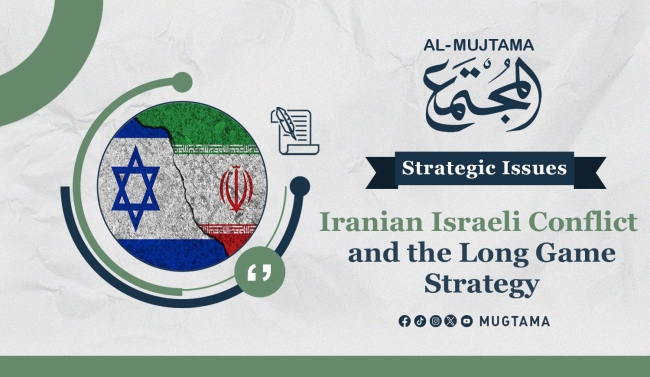Iranian Israeli Conflict and the Long Game Strategy
The United States, Israel and Iran did a very good job of remaining silent on Friday after the Israeli strikes near the Iranian city of Isfahan, perhaps because silence is the real message that shows the desire of all parties to prevent escalation in word or deed.
In his column in the Washington Post, Ignatius referred to what he saw as Israel's deliberate decision to reshape its strategy to deter Iran and what he described as its proxies.
The absence of Israeli deterrence
He continued that Israeli deterrence is usually through the intensive use of offensive force and consists of a strong blow to impose compliance through coercion.
But this time it was different, as it used the Iron Dome defense system and the help of allies to absorb the major Iranian strike, then Tel Aviv submitted to pressure from US President Joe Biden and did not respond immediately, even though some Israelis wanted to respond quickly and with great force.
Agreeing to be silent
Then the Israeli response came on Friday, but it was silent - as the writer says - as Iranian and Israeli reports indicate that Israel attacked a site near some of the largest Iranian nuclear facilities, and those facilities were not damaged, according to the International Atomic Energy Agency, but Israel sent a message that it is capable To penetrate Iranian air defenses and strike strategic targets when it so chooses.
Escalation dominance
Israel wanted to have the final say in this military exchange, and it seems that it succeeded in that, as Russian Foreign Minister Sergei Lavrov said, after talks with officials in Tehran, that “Iran does not want escalation,” and Iranian public statements mocked this limited measure. In this sense, Israel has maintained what strategists call “escalation dominance.”
The writer wondered about Israel's actions, and what explains the restraint it exercised, in a situation in which hawks in the Israeli government were screaming for a comprehensive attack.
He explained that Israel is acting as if it were the leader of a regional coalition against Iran, and therefore its thoughtful response shows that it is weighing the interests of its allies who provided tremendous and quiet assistance in thwarting the major Iranian attack, which means that it is playing the long game.
The writer believed that this was a qualitative shift for Israel, as it realized, instead of viewing itself as “the besieged Jewish state fighting alone for survival against a battalion of Arab and Muslim enemies,” that it had allies, led by the United States, but with it the Arab countries that... It opposes Iran and its proxies.
Enmity flavored with friendship
Ignatius concluded that this is the new shape of the Middle East, and that Israel has gained a valuable asset over the past week, noting that this mature friendship between Israel and its former opponents in the region must, for the time being, remain undeclared.
After absorbing the Iranian missile attack with great skill - as the writer says - Israel is now seen as a victim and a master of high-tech defense, and this is a welcome gain, after 6 months of intense fighting in Gaza, which has severely tarnished Israel's international reputation.
After the series of Iranian missiles and the limited response from Tel Aviv, Israel now appears to have the support of the Group of Seven advanced industrialized countries, Ignatius explains.
According to the writer, regardless of what “Israeli hardliners say, we are seeing something new after the April weapons,” explaining that the worst is yet to come, if Iran decides to “infiltrate” towards obtaining nuclear weapons, or Hezbollah launches attacks from the north, or Israel chooses Launching a devastating preventive war against Hezbollah in Lebanon.
The writer stressed that reaching a quick end to the war in Gaza is necessary now, because it is in the clear interest of Israel, the Palestinians, and the entire Middle East to end this conflict and resume the path of normalization with Arab countries.
Source: Washington Post


